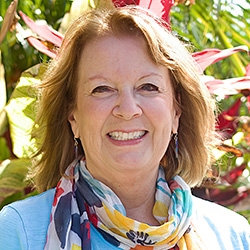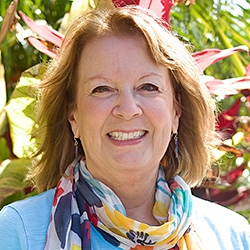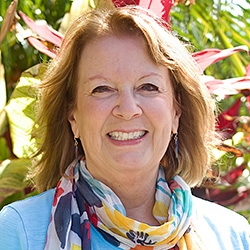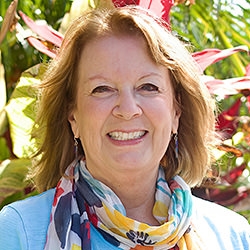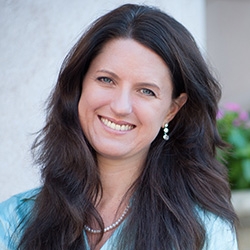

Search Results: emotion
-
Trainer Tip: When we feel resentment toward others, we are harming our own emotional health. Surprisingly, when we own up to our part of an uncomfortable situation, we can release the pain and resentment. Such honesty can provide healing. Read on for a related anecdote of how this can play out.
-
Trainer Tip: Whether there is the potential of physical or emotional violence, listening deeply to the underlying needs of the people in conflict can be swift, direct, and healing. Look for opportunities to defuse conflicts by reflecting the feelings and needs of the other person.
-
Trainer Tip: Notice when you're tempted to wield physical, emotional, and intellectual power to get your children to do what you want. This coercion or force may bring short term ease, but long term it can be counterproductive. Ask yourself “What do I want my child to do?” and “What do I want my child’s reasons for doing it to be?”. Then consider ways to help them connect to their intrinsic motivation for doing it.
-
Trainer Tip: Are you meeting your needs for exercise? Consider which activities would help you meet your needs for physical and emotional health and fun, rather than focusing on what expert opinion says. If you feel overwhelmed and had a hard time sticking to the program feel free to tweak your program so that you enjoy it more.
-
Mismanaged emotional pain can compound and hurt ourselves and others. Four ways we can mismanage pain are: denial, blame, depression, and escape/numbing. This can result in hatred, resentment, discrimination, revenge, anger, and more problems. The fifth way we can deal with pain is to confront the pain acknowledging it and dealing with our unmet needs. This is a more direct path. Read on for more ideas for how to handle the pain.
-
Trainer Tip: When we withhold our truth or lie, we can create emotional and physical distance in our relationships. By being honest, we can strengthen relationships. And when someone doesn’t appreciate your honesty, try empathizing with them. It can help to notice how your actions stimulate feelings in other people -- even as they are not the cause of their feelings.
-
NVC can be seen as a restorative practice that reconnects us with life, trust, and the experience of mattering.
-
CNVC Certified Trainer Arnina Kashtan tells us to look to our inner dialogue and the other's needs when we're feeling fear of physical violence that's been stimlated by someone's anger.
-
When building successful relationships, it can be very helpful to see yourself as a collection of different inner parts that developed due to various life experiences. Without empathy and acknowledgment, our inner parts tend to work against us. That's when we're called upon to build and develop our inner leadership...
-
During the holiday season we may find ourselves taking responsibility for other's feelings, which can lead to guilt, shame, depression, and resentment. These feelings are exacerbated by the habitual pattern we call the "Vortex of Submission" (being hooked by a sense of duty and obligation). Read on for ways to recognize and break the pattern.
-
Here's a four step exercise applying a needs-based approach to effective goals, habits and New Year's Resolutions.
-
One clue we have trauma is when we respond in a way we don't want (eg. being reactive, self sabotaging, etc). Even when we have high level NVC skills our trauma-related mechanisms can activate, and we can lose access to well honed NVC skills. Read on for approaches that involve healing trauma, and approaches that involve managing the effects of trauma and preventing additional trauma.
-
Anger can result in violence or in a movement towards positive change. We can see this happen in the push for racial justice. When you perceive anger as a form of violence your nervous system becomes activated. Your perspective narrows and old conditioning can take over leading to overwhelm, defensiveness, hatred, or violence. Read on for four ways to to respond to our own or others' anger in a way that mobilizes desired change.
-
Let's look at the resources, awareness, and skills needed to ask for emotional attunement, celebration, relatedness, perspective, understanding, advice, and information. This includes expressing appreciation for what's supporting your needs, strengthening a sense of worthiness, and awareness of your reactivity and intention. Plus, making requests that are clear, specific, doable and creates a heart connection with others.
-
In the "obnoxious stage" we care for our needs in a way that doesn't respect others' needs. In the "emotional liberation" stage we fully care for others' needs as much as our own—while being free of fear, guilt, shame, or obligation. Often NVC training teaches us how to achieve the latter stage without the former. For greater compassion we can be more rigorous in how we talk about “responsibility", impacts and interdependence.
-
Setting boundaries takes being firmly grounded in self-respect and clear about what works for you. This means making conscious choices about how you relate to another or behave in a situation. Such clarity allows you to put your attention and energy where you want it to go. Thus we can have care and compassion without taking responsibility for others, nor feeling guilty when we say “no”. This takes awareness, skills, practice, healing and compassion.
-
Codependency occurs when others' behavior affects us in unhealthy ways and we get obsessed with controlling their behavior. For example, we may focus on other's needs while neglect what matters to us, and resent it. Or we may depend on others to rescue us from results of our actions. Or we may fix or rescue others' neglected responsibilities. Or we may make others responsible for our needs. Instead, notice your needs, what you can('t) change, and your priorities.
-
Research shows that couples with a secure bond experience arguments that are shorter, lower in intensity, and easier to recover from. Building and keeping a secure bond with your partner requires mindfulness and consistency: respond to what’s needed or supportive in a given moment; give them your full attention and affection in a spacious greeting; conveying care, consideration, and that they matter and are seen.
-
Yvette Erasmus shares practices to help us develop a regulated nervous system. We all get hijacked and triggered at some point. When that happens we can travel a blame and shame road or we can greet ourselves with graciousness and self compassion.
-
An anchor is something you turn your attention toward in order to interrupt reactivity and access a non-reactive, expansive perspective. Though it doesn't make the reactivity go away, it allow you the internal space to choose to not behave from reactivity. In this practice exercise learn more about anchors, plus how to create and use them.

Quick Links
Subscription Preferences
Stay In Touch!
Looking for ways to keep up with NVC Academy news, get special offers, free resources, or words of inspiration? Here are five ways to stay engaged:

